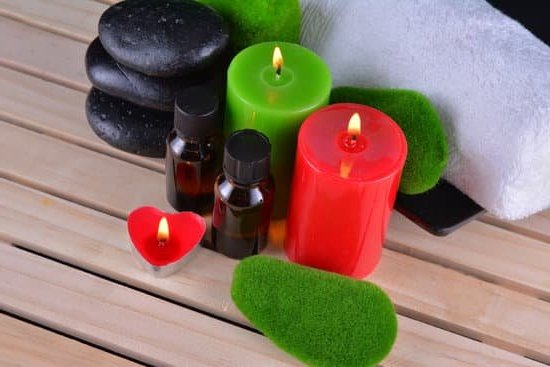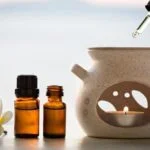Aromatherapy is a holistic healing practice that has gained popularity for its therapeutic benefits in promoting mental and physical well-being. At the heart of this ancient practice lies the science behind aromatherapy, which explores how essential oils interact with the brain to affect our mood, emotions, and overall health. By harnessing the power of scents, aromatherapy offers a natural and non-invasive way to support wellness.
Dating back to ancient civilizations, aromatherapy has been used for centuries in various cultures around the world for its healing properties. From Egypt to Greece, traditional medicine incorporated the use of aromatic plants and oils for their medicinal benefits. Today, modern practices of aromatherapy continue to evolve as researchers delve deeper into understanding the physiological and psychological effects of scent on the human body.
The science behind aromatherapy involves studying how essential oils, which are derived from plants through distillation or extraction methods, influence the limbic system of the brain. This area of the brain is responsible for regulating emotions, behavior, and memory. By inhaling or applying essential oils topically, these aromatic compounds can stimulate certain receptors in the brain, leading to various therapeutic effects such as stress relief, improved sleep quality, and enhanced focus.
History of Aromatherapy
Aromatherapy has a rich history that dates back to ancient civilizations, where aromatic plants and their extracts were used for various purposes. The practice of using scents for healing and relaxation can be traced back to the Egyptians, Greeks, Romans, and even early Chinese and Indian cultures. In these early civilizations, essential oils were extracted from plants through methods like distillation and used in religious rituals, medicinal treatments, and perfumery.
The history of aromatherapy continued to evolve over time, with many cultures recognizing the benefits of essential oils not just for their pleasant fragrances but also for their therapeutic properties. In the Middle Ages, aromatic herbs were used to ward off disease during times of plague, showcasing the belief in the power of scent to protect against illness. As knowledge of plant extracts expanded, so did the understanding of how different aromas could impact both physical and emotional well-being.
In modern times, aromatherapy has become a popular holistic practice that combines traditional wisdom with scientific research on the effects of essential oils. The science behind aromatherapy reveals how inhaling certain aromas can stimulate the limbic system in the brain, which is responsible for emotions, memories, and behaviors. This interaction between scent molecules and brain receptors can trigger responses that promote relaxation, reduce stress, improve sleep quality, and even alleviate certain symptoms associated with anxiety or depression.
The Science Behind Aromatherapy
Aromatherapy is a holistic healing treatment that uses plant extracts, known as essential oils, to promote health and well-being. The science behind aromatherapy lies in understanding how these aromatic compounds interact with the brain and body to produce therapeutic effects. Essential oils are made up of volatile molecules that can trigger various physiological responses when inhaled or applied to the skin.
The olfactory system, which is responsible for our sense of smell, plays a crucial role in the science behind aromatherapy. When we inhale essential oils, odor molecules travel through the nasal cavity and stimulate olfactory receptors. These receptors then send signals to the limbic system, a region of the brain involved in emotions, memories, and behavior. This is why certain scents can evoke powerful emotional responses or trigger specific memories.
To further understand the science behind aromatherapy, it’s important to consider the chemical composition of essential oils. Each oil contains unique compounds that contribute to its therapeutic properties. For example, lavender oil has been found to have calming and relaxing effects due to its high content of linalool and linalyl acetate.
Peppermint oil, on the other hand, contains menthol which can help alleviate headaches and improve mental clarity. By studying these chemical components, scientists can better comprehend how essential oils work on a biochemical level to benefit both mental and physical health.
Some key points regarding The Science Behind Aromatherapy:
- Essential oils contain volatile molecules that interact with olfactory receptors in the nose.
- The limbic system in the brain is involved in processing emotions and memories triggered by scents.
- Each essential oil has a unique chemical composition that contributes to its therapeutic effects.
By delving into the science behind aromatherapy, researchers have begun to uncover more about how essential oils can positively impact our health and well-being. Studies have shown that certain scents can help relieve stress, improve sleep quality, boost mood, enhance cognitive function, and even reduce pain perception. The science behind aromatherapy continues to evolve as more research is conducted on this ancient practice that holds promising potential for modern healthcare approaches.
Overall understanding The Science Behind Aromatherapy provides insights into how essential oils can influence our brain chemistry and physiology. With ongoing research shedding light on its mechanisms of action and clinical applications, aromatherapy has emerged as a valuable complementary therapy in promoting holistic wellness. As we learn more about how scents interact with our brains and bodies at a molecular level mitigating health issues holistically becomes more feasible through this ancient practice integrated with modern scientific discoveries.
Benefits of Aromatherapy
Aromatherapy is a popular holistic healing treatment that uses essential oils to promote physical and mental well-being. The science behind aromatherapy lies in the way these aromatic compounds interact with the brain through our olfactory system. When we inhale the scents of essential oils, they can trigger various responses in our brain, influencing our emotions, mood, and even physiological functions.
One key mechanism behind the benefits of aromatherapy is the impact of essential oils on the limbic system, which plays a role in regulating emotions, behavior, and long-term memory. Certain essential oils have been found to have calming effects, reducing stress and anxiety levels. For example, lavender oil has been shown to promote relaxation and improve sleep quality when used in aromatherapy. On the other hand, peppermint oil may help increase alertness and focus due to its invigorating scent.
In addition to emotional benefits, aromatherapy can also have physical effects on the body. Some essential oils possess anti-inflammatory, antimicrobial, or analgesic properties that make them useful for managing pain, reducing inflammation, or supporting overall health.
For instance, tea tree oil is known for its antiseptic properties and is often used topically to treat skin conditions or as a natural disinfectant. By incorporating aromatherapy into daily routines or specific treatments, individuals can experience a wide range of therapeutic benefits that enhance their well-being.
| Aromatherapy Benefit | Corresponding Essential Oil |
|---|---|
| Calming and Relaxation | Lavender Oil |
| Improved Focus and Alertness | Peppermint Oil |
| Natural Disinfection and Skin Care | Tea Tree Oil |
Aromatherapy in Practice
Aromatherapy is a holistic healing treatment that uses natural plant extracts, known as essential oils, to promote overall well-being. These powerful scents are believed to have the ability to affect mood, alleviate stress, and even improve physical health. There are various methods of incorporating essential oils into your daily routine for therapeutic purposes, each offering unique benefits.
Diffusion
One of the most popular ways to enjoy the benefits of aromatherapy is through diffusion. This method involves dispersing essential oils into the air using a diffuser. The diffuser breaks down the molecules in the oil, allowing them to be easily inhaled and absorbed by the body. Diffusing essential oils not only creates a pleasant aroma but also helps purify the air and support respiratory health.
Topical Application
Another common practice in aromatherapy is applying essential oils directly to the skin. By diluting them with a carrier oil, such as jojoba or coconut oil, you can safely massage the mixture onto your skin for targeted relief. Whether you’re looking to soothe sore muscles, enhance relaxation, or improve skin health, topical application allows for direct absorption of the oils into the bloodstream for maximum effectiveness.
Inhalation
Inhalation is another effective way to experience the benefits of aromatherapy. This method involves inhaling essential oils either through steam inhalation or by placing a few drops on a cotton ball or tissue. As you breathe in the scent of the oil, it interacts with receptors in your nasal cavity and triggers responses in your brain that can help uplift your mood, reduce anxiety, or provide respiratory support.
By exploring different methods of using essential oils for therapeutic purposes, individuals can incorporate aromatherapy into their daily routines to promote mental and physical well-being effectively. Whether through diffusion, topical application, or inhalation, these practices harness the science behind aromatherapy to provide natural solutions for enhancing overall health and wellness.
Popular Essential Oils
Aromatherapy has gained popularity for its holistic approach to improving overall well-being through the use of essential oils. Essential oils are highly concentrated plant extracts that are known for their therapeutic properties.
The science behind aromatherapy lies in how these essential oils interact with the brain, affecting emotions, mood, and even physiological responses. When inhaled or applied to the skin, the molecules in essential oils stimulate the olfactory system and limbic system in the brain, which play a crucial role in memory, emotions, and behavior.
Popular essential oils like lavender and peppermint have been studied extensively for their beneficial effects on mental and physical health. Lavender is known for its calming properties and ability to reduce stress and anxiety levels.
Peppermint, on the other hand, is invigorating and can help improve focus and alleviate headaches. These essential oils can be used in various ways, such as diffusing them into the air, mixing them with carrier oils for massage, or adding them to bathwater for a relaxing soak.
In addition to lavender and peppermint, there are other essential oils with unique properties that cater to different needs. For example, eucalyptus oil is often used for respiratory support and clearing congestion, while tea tree oil is famous for its antiseptic and anti-inflammatory properties.
Whether you are looking to unwind after a long day, boost your energy levels, or alleviate minor ailments, there is an essential oil out there that may help address your specific concerns. Explore the diverse world of aromatherapy and find the scents that resonate with you for a truly personalized experience.
Research Studies on Aromatherapy
Overview of Research in Aromatherapy
Over the years, there has been a growing interest in the science behind aromatherapy and its potential benefits for both physical and mental well-being. Researchers have been conducting studies to understand how essential oils interact with the brain and body to produce therapeutic effects. These studies have delved into the chemical composition of essential oils, their mechanisms of action, and their impact on various health conditions.
One area of research that has gained significant attention is the use of aromatherapy in managing stress and anxiety. Several studies have shown that certain essential oils, such as lavender and chamomile, can help reduce anxiety levels and promote relaxation. The calming effects of these oils are believed to be linked to their ability to stimulate neurotransmitters in the brain associated with mood regulation.
Evidence-Based Findings on Aromatherapy
Scientific studies have also explored the effectiveness of aromatherapy in improving sleep quality, enhancing cognitive function, and alleviating symptoms of depression. For example, research has indicated that inhaling rosemary essential oil may enhance memory retention and cognitive performance. Similarly, peppermint essential oil has been found to have energizing properties that can help improve focus and alertness.
Furthermore, some studies have suggested that aromatherapy can aid in pain management by reducing discomfort levels in individuals suffering from chronic conditions like arthritis or migraines. By triggering specific receptors in the brain, certain essential oils have shown promising results in relieving pain and inflammation. The science behind aromatherapy continues to evolve as researchers conduct more rigorous scientific investigations to validate its therapeutic potential across various health concerns.
Safety Precautions and Best Practices
Aromatherapy is a popular holistic approach to health and wellness that utilizes the power of scents to improve mental and physical well-being. The science behind aromatherapy involves understanding how essential oils interact with the brain, impacting our emotions, moods, and overall health. These aromatic compounds have been used for centuries in various cultures for their therapeutic benefits, and modern research continues to uncover the ways in which they can positively influence our bodies.
When using essential oils for aromatherapy purposes, it is important to follow safety precautions and best practices to ensure their effectiveness and prevent any potential adverse reactions. One tip for safely using essential oils is to always dilute them with a carrier oil before applying them to the skin, as some oils can cause irritation or sensitivity if used undiluted.
It is also recommended to perform a patch test before using a new essential oil topically, especially if you have sensitive skin or allergies.
Furthermore, when diffusing essential oils in the air, make sure to use a proper diffuser that does not overheat the oil and allows for gradual dispersal. Avoid prolonged exposure to concentrated amounts of essential oils, as this can lead to respiratory issues or headaches.
Overall, practicing caution and moderation when using aromatherapy can help you experience its full benefits without any negative side effects. By incorporating these safety tips into your aromatherapy routine, you can enjoy the therapeutic properties of essential oils while promoting your well-being effectively.
Conclusion
Aromatherapy has a rich and fascinating history, dating back to ancient civilizations that recognized the power of scents for healing and well-being. From its traditional roots to modern-day practices, the use of essential oils has evolved into a popular holistic approach to promoting health and wellness. The science behind aromatherapy sheds light on how these aromatic compounds interact with the brain, influencing emotions, mood, and even physiological responses.
As research studies continue to explore the benefits of aromatherapy, more evidence supports its effectiveness in improving mental and physical well-being. Whether it’s through inhaling essential oils, applying them topically, or using them in diffusers, individuals can experience reduced stress levels, improved sleep quality, enhanced focus, and even relief from various physical ailments. The key lies in understanding the properties of different essential oils and finding the right combination that works best for each individual’s needs.
Moving forward, the future of aromatherapy seems promising as more people embrace natural alternatives to traditional medicine. As awareness grows about the potential benefits of aromatherapy, we can expect to see an increase in research studies exploring its efficacy and expanding its applications in various healthcare settings. By incorporating the science behind aromatherapy into mainstream practices, we can harness the power of scents to support overall health and well-being for years to come.
Frequently Asked Questions
Is There Science Behind Aromatherapy?
Aromatherapy is backed by some scientific evidence, although more research is needed to fully understand its effects. Studies have shown that certain essential oils used in aromatherapy can have calming, relaxing, and mood-boosting properties.
What Is the Basic Principle Behind Aromatherapy?
The basic principle behind aromatherapy is the belief that inhaling the aroma of essential oils can stimulate brain function and impact the nervous system. This can lead to various physical and emotional benefits, such as relaxation, stress relief, and improved well-being.
What Does Aromatherapy Do to the Human Body?
Aromatherapy affects the human body in multiple ways. When inhaled, the scent of essential oils can trigger chemical reactions in the brain that can help relieve anxiety, improve sleep quality, reduce pain perception, and boost mood. When applied topically, essential oils can also have anti-inflammatory and antimicrobial effects on the body.

Are you looking for a natural way to improve your health and wellbeing?
If so, aromatherapy may be the answer for you.




